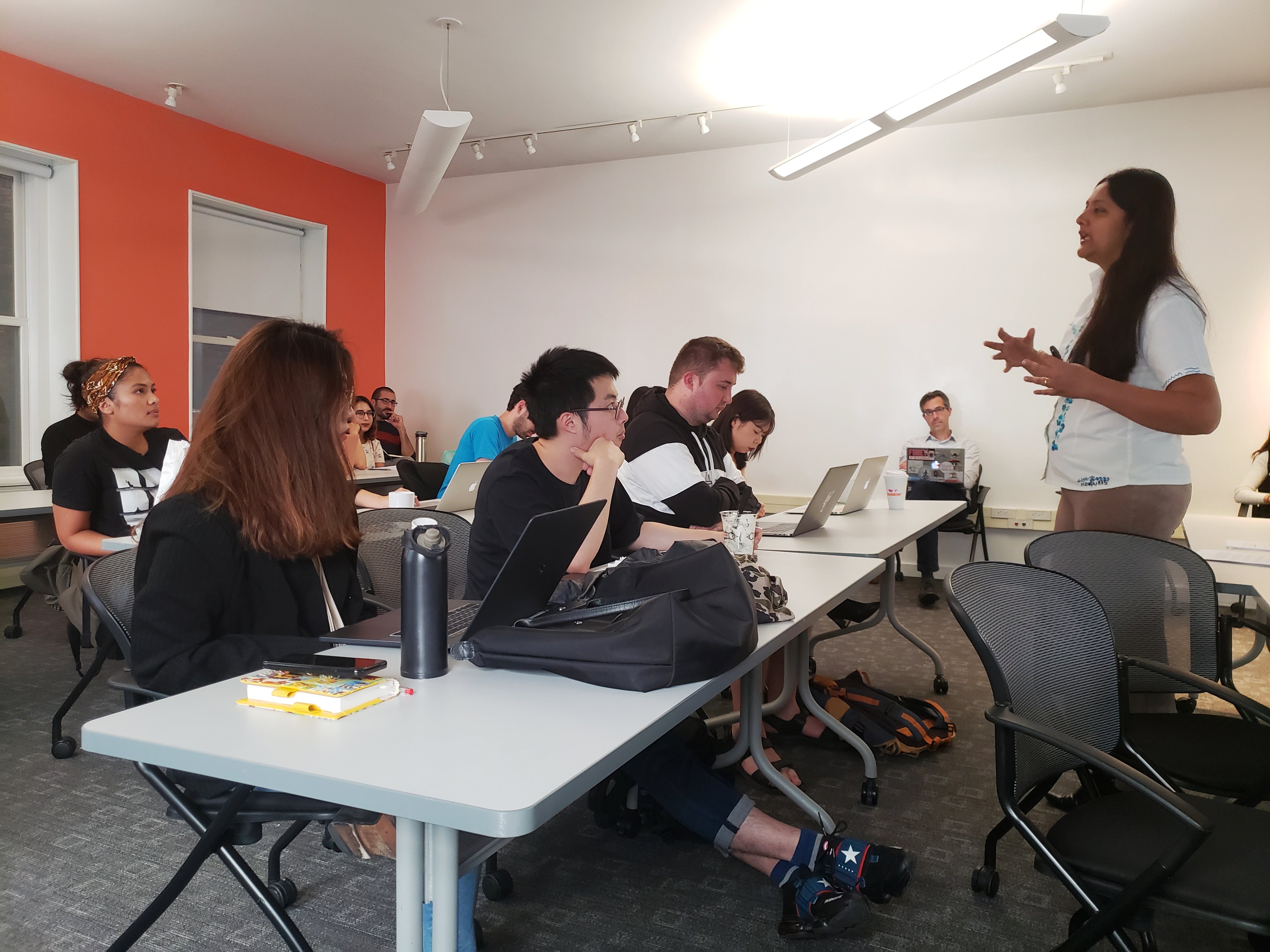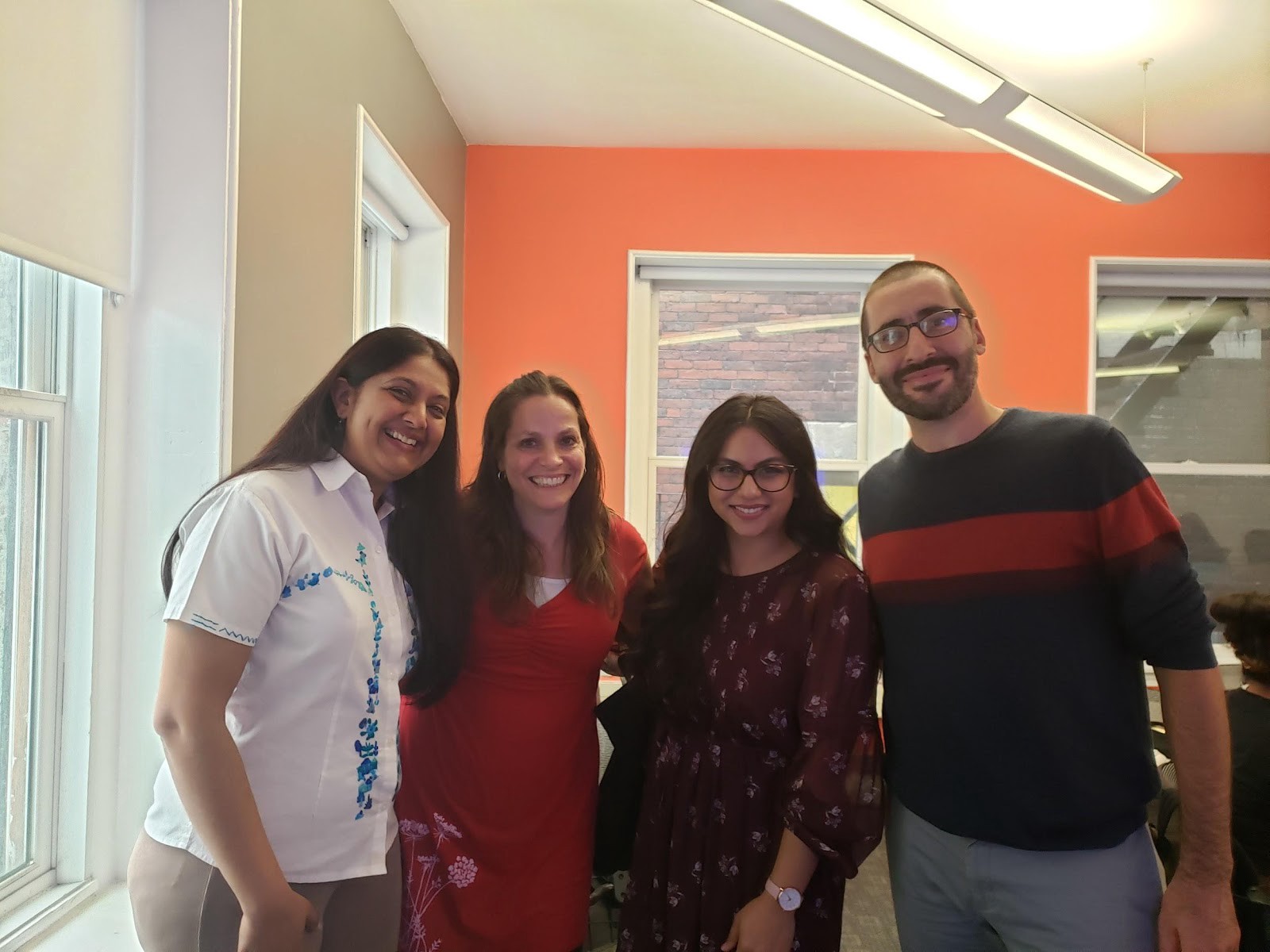Difficult Dialogues, Anti-Racism Pedagogy,
Wednesday, October 16, 2019

and Inclusive Communication with Dr. Srivi Ramasubramanian
Earlier this month, Dr. Srivi Ramasubramanian joined Media Design students, faculty, and members of the Engagement Lab to facilitate an open conversation on the significance of diverse and inclusive spaces on college campuses. Her seminar, “Difficult Dialogues, Anti-Racism Pedagogy, and Inclusive Communication,” outlined pressing social issues around diversity and equity, such as why creating spaces for marginalized groups is necessary, how to design theory-driven initiatives for effective dialogues on difficult topics such as racism, and strategies to consider for more inclusive communications.
Dr. Srivi Ramasubramanian teaches at Texas A&M University, where she is a Professor of Communication, Affiliated Professor of Women’s and Gender Studies, and former Associate Dean for Climate & Inclusion. Her scholarship focuses on diversity, identity (especially race, gender, religion, and nationality) critical media effects, stereotyping, dialogue, media literacy, youth , and mindfulness.

Azeta Hatef, Assistant Professor of Journalism, Emerson College
Dr. Ramasubramanian’s lecture centered around the work she has done to push diversity initiatives at Texas A&M University, such as the Difficult Dialogues on Campus Race Relations program, an innovative approach to having productive conversations about campus racism in mixed race settings. Its specific aim is to recognize and combat campus racism, racial microaggressions, and to serve as a case study on how race impacts the communication process, in regard to both the design and execution of such conversations.
Dr. Ramasubramanian’s efforts to combat campus racism and microaggressions through the construction of safe and inclusive spaces fostered thought and dialogue amongst some Media Design students, who are equally as concerned about the construction and maintenance of diverse and inclusive environments as they enter new and familiar communities to craft their thesis projects. Rakshya Devkota, who served as an Americorps Volunteer at City Year before beginning the program this fall, partook in exercises with a similar structure to the Difficult Dialogues program and liked the idea of designing spaces differently based on the audience that is being engaged.
Rakshya also raised some thought-provoking questions: what does an appropriate next step look like? What steps can be taken to ensure that the values and skills that emerge from these discussions are sustainable and applied in contexts outside of the session space? “Conversations are great starting points — you need to have a conversation to address these larger issues,” notes Chitra Anwar. “How we can progress to create something beyond the initial conversations; how do we hold people accountable?”
To learn more about her work and scholarship, check out Dr. Ramasubramanian’s faculty profile at Texas A&M University’s website.